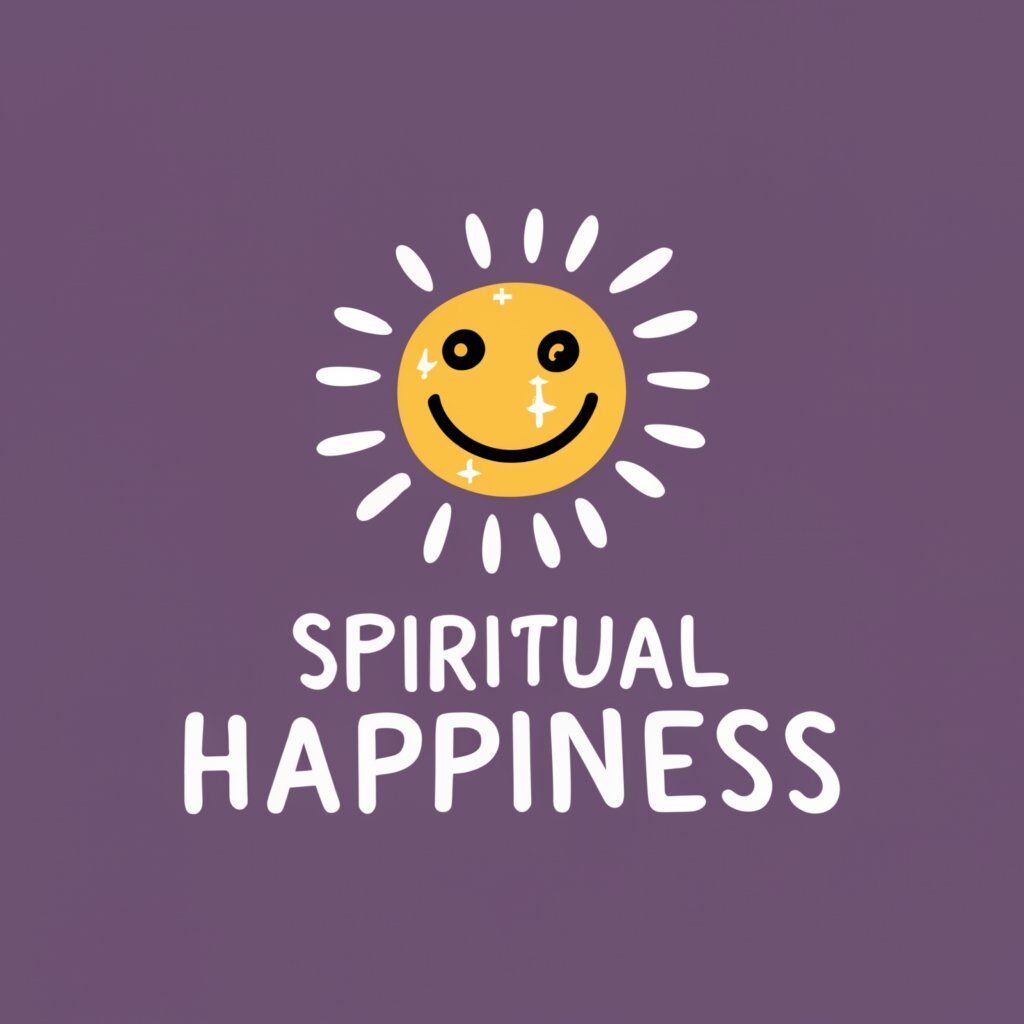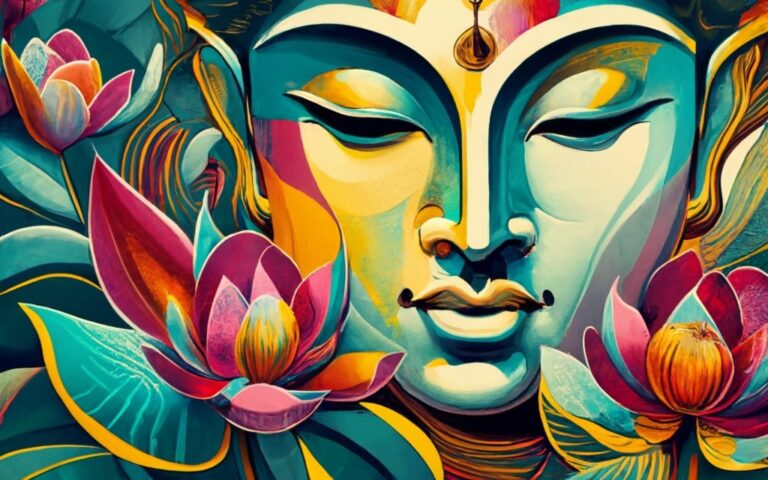Exploring the Interplay Between Spirituality and Religion
In the realm of human experience, spirituality and religion are two concepts that often intertwine, yet possess distinct nuances. This article delves into the definitions of spirituality and religion, highlighting the differences between them, and explores the ways in which one can embrace spirituality irrespective of religious affiliations.
Defining Spirituality and Religion

Spirituality: A Personal Experience
At its core, spirituality can be described as an individual’s profound connection with the intangible aspects of existence. It’s the way one perceives and experiences the world beyond the material and physical. For many, spirituality is a deeply personal journey, marked by self-discovery, inner peace, and a sense of purpose. It’s worth noting that spirituality doesn’t necessarily require adherence to a specific religious doctrine. It’s about finding meaning and connection in life, whether or not one follows organized religion.
Religion: A Framework of Beliefs
Religion, on the other hand, typically involves a set of organized beliefs, practices, rituals, and moral codes. It often centers around the worship of a deity or deities and follows a prescribed doctrine. Religions provide a structured framework for understanding the divine, moral guidelines for living, and a sense of community among its followers. They encompass various faiths like Christianity, Islam, Buddhism, Hinduism, and many more.
The Interplay: Spirituality and Religion

While spirituality and religion have distinct definitions, they aren’t mutually exclusive. Many individuals find their spirituality within the framework of organized religion. They perceive the rituals and teachings as a means to nurture their spiritual connection. At the same time, there are those who consider themselves spiritual but not religious, choosing to explore the metaphysical aspects of life independently.
Embracing Spirituality Without Religion

A Personal Journey
For those seeking spirituality without religious affiliations, the path is open and highly personal. Here are some ways to embark on this journey:
- Meditation and Mindfulness: Practicing meditation and mindfulness techniques can help you connect with your inner self, fostering a sense of spirituality.
- Nature Exploration: Spending time in nature and appreciating its beauty often leads to a profound sense of connection and spirituality.
- Self-Reflection: Engaging in self-reflection and journaling can help you explore your beliefs, values, and what holds meaning for you.
- Exploring Philosophical Texts: Delve into philosophical writings from various traditions to gain insights into different perspectives on spirituality.
- Yoga and Breathwork: These practices can help align your physical and spiritual well-being, promoting a deeper sense of self.
- Acts of Kindness: Engaging in acts of kindness and helping others can be a spiritual experience in itself, fostering a sense of purpose.
- Community and Support: Seek out like-minded individuals or groups that explore spirituality without religious constraints, providing a supportive community.
Key Takeaways

Spirituality and religion are distinct yet interconnected aspects of human existence. While religion provides a structured framework for faith and worship, spirituality is a deeply personal journey of self-discovery and connection with the intangible. The interplay between these concepts allows individuals to find their unique path to spiritual fulfillment, whether within a religious context or independently.
So, whether you seek spirituality within the confines of a specific faith or you’re on a quest for a more personal connection with the spiritual realm, remember that the journey is yours to navigate. Explore, reflect, and embrace the profound depth of the human spirit, irrespective of religious affiliations.
Navigating the Differences: Spiritual vs. Religious

Defining Spiritual Religion
One of the areas where the lines between spirituality and religion blur is the concept of spiritual religion. This term refers to individuals who are deeply religious but also highly spiritual. They find a profound connection with their faith and consider it not just a set of beliefs but a source of spiritual nourishment. In essence, they embody both the structure of religion and the personal experience of spirituality.
Spiritual Life: A Journey of Meaning
Understanding what spiritual life entails is crucial for those looking to embrace it. It’s about delving into the deeper questions of existence, seeking a sense of purpose, and connecting with something greater than oneself. While some find this connection within a religious context, others explore it independently.
Bridging the Gap: Spiritual Lifestyle
For those curious about merging spirituality and daily life, adopting a spiritual lifestyle can be transformative. Here are some ways to integrate spirituality into your everyday existence:
- Mindful Living: Practice mindfulness not just during meditation but in every moment of your life. Be fully present in your daily activities, savoring each experience.
- Gratitude Practice: Cultivate gratitude by acknowledging the blessings in your life. Regularly express gratitude for the simple joys and experiences that bring you happiness.
- Acts of Compassion: Embrace compassion by extending a helping hand to those in need. Acts of kindness not only benefit others but also nurture your own spiritual growth.
- Exploration of Beliefs: Continually explore your beliefs and values. Be open to questioning and evolving your understanding of spirituality.
- Artistic Expression: Engage in creative pursuits like art, music, or writing to express your spiritual experiences and emotions.
- Community Engagement: Connect with like-minded individuals or join spiritual communities that align with your beliefs. Sharing experiences and insights with others can deepen your spirituality.
The Essence of Spiritual Life in Christianity
Christianity, one of the world’s major religions, also encompasses a rich spiritual dimension. Within Christian spirituality, individuals seek a personal relationship with God and strive to live in accordance with Christian teachings. It involves prayer, scripture study, acts of charity, and attending church services. For Christians, spirituality often goes hand-in-hand with religious practice, reinforcing their faith.
Differentiating Spiritual from Religious
To clarify the distinction between spiritual and religious, consider the following:
- Spirituality is Personal: It’s about your individual journey, your connection with the divine or higher self, and your quest for inner peace.
- Religion is Communal: It involves organized belief systems, religious institutions, and communal worship with fellow believers.
- Spirituality is Inclusive: It can be embraced by people of all faiths, as well as those who identify as spiritual but not religious.
- Religion is Exclusive: Each religion has its own specific doctrines, practices, and often, exclusive claims to truth.
Conclusion
In conclusion, the interplay between spirituality and religion is a nuanced and deeply personal journey. While religion offers structure, beliefs, and a sense of community, spirituality delves into the profound connection with the intangible aspects of existence. These two concepts often overlap, with many individuals finding their spirituality within the framework of organized religion, while others embark on independent journeys.
It’s important to recognize that there is no one-size-fits-all approach to spirituality or religion. Each person’s path is unique, and the quest for spiritual fulfillment can take various forms. Whether you choose to embrace spirituality within a religious context or explore it independently, the key is to remain open, reflective, and true to your personal beliefs and values.
FAQs: Navigating Spirituality and Religion
Q1: What is the difference between spiritual and religious?
A1: The main difference lies in their focus and approach. Spirituality is a personal journey of inner exploration, seeking meaning and connection beyond the material world. Religion, on the other hand, involves organized belief systems, practices, rituals, and often centers around communal worship.
Q2: Can one be spiritual without being religious?
A2: Absolutely. Many individuals identify as spiritual but not religious. They explore their spiritual connection independently of any religious affiliation, seeking their own path to inner fulfillment.
Q3: How can I embrace a spiritual lifestyle?
A3: A spiritual lifestyle involves integrating spiritual values and practices into your daily life. You can achieve this by practicing mindfulness, gratitude, acts of compassion, creative expression, and engaging with like-minded communities.
Q4: What is the essence of spiritual life in Christianity?
A4: In Christianity, spiritual life centers around a personal relationship with God and living in accordance with Christian teachings. It involves prayer, scripture study, acts of charity, and participation in church activities.
Q5: Can spirituality be inclusive of all faiths?
A5: Yes, spirituality is inclusive and can be embraced by individuals of all faiths or no specific faith at all. It transcends religious boundaries and focuses on personal connection and meaning.
In your exploration of spirituality and religion, remember that your journey is a continuous and evolving one. Keep an open heart and mind as you seek to understand your beliefs, values, and the profound dimensions of the human spirit. Whether you find spirituality within a religious context or choose a more independent path, your quest for meaning is a deeply personal and enriching experience.







